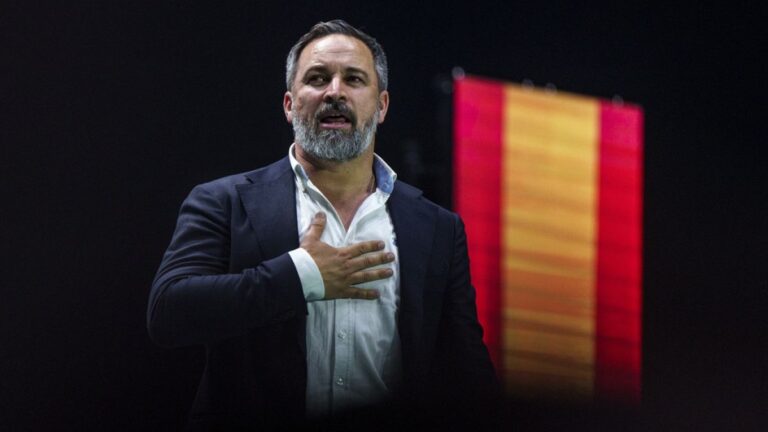The balance of power in the European Parliament is shifting again, with Spain’s far-right parties shifting from the European Socialist Group led by Mr Meloni’s party to a potential new coalition led by Mr Orban’s Fidesz party.
advertisement
Spain’s far-right party Vox, which currently has six MEPs, has formally announced that it is leaving the European Conservatives and Reformists (ECR) group to join a new party led by Hungarian Prime Minister Orban’s Fidesz party.
Geert Wilders, leader of the Dutch far-right Party for Freedom, also announced he would join Prime Minister Orban’s party.
He posted on X: “We are PVV patriots and we love our homeland. We will be strong and sovereign. We will resist illegal immigration. We will defend and support peace and freedom. We will protect our Judeo-Christian traditions. And we will protect our families. We want to join forces in the EP and we will be proud to join.”
Orban’s coalition already includes the Czech Republic’s ANO, the Austrian Freedom Party (FPÖ) and Portugal’s Chega, but rules mean that to become a political group in the European Parliament, European Patriots must also represent one more EU member state.
The alliance currently has parties from six member states, but needs more parties from a seventh member state to meet the criteria for forming a new coalition.
Vox party leader Santiago Abascal said the decision was in response to a “historic opportunity” to take on a coalition of centre-right, socialist and far-left forces.
The Spanish far-right party expressed its gratitude for the ECR group’s friendship, especially with Italian Prime Minister Giorgia Meloni and her party, Fratelli d’Italia.
“Giorgia Meloni will always be a partner, friend and ally of Vox,” the party said in a press release.
But after the ECR group held its inaugural meeting this Wednesday and elected Vox MEP Hermann Telch as the party’s deputy leader, they abandoned her.
Hungarian Prime Minister Viktor Orbán has also tried unsuccessfully to get Poland’s Law and Justice (PiS) party to join his “Union of European Patriots,” Euronews reported on Wednesday.
Next Monday, July 8th, will be a key day for the far-right, as both the ID group and the Patriot Alliance are scheduled to hold constituent meetings, with only one side expected to survive the challenge.

